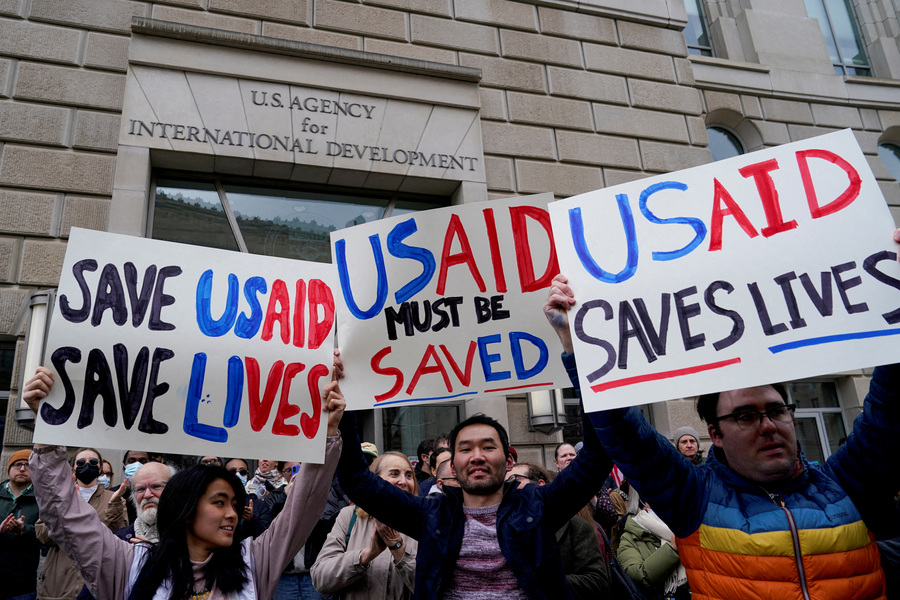Two internal reports from the Office of Inspector General (OIG) of the U.S. Agency for International Development (USAID) remain buried. The documents, which analyze the turmoil triggered by the Trump administration’s freeze on crucial aid programs in Africa and the Middle East, have been withheld from publication. According to internal sources reported by The Washington Post, the reports were stalled due to fears of White House retaliation.
One unpublished report warns that the funding cuts could undermine the fragile ceasefire between Israel and Hamas in Gaza, jeopardizing more than $300 million in humanitarian aid for the Palestinian enclave.
Another document, a global audit also kept under wraps, highlights security risks, widespread looting, and the spread of disease. It estimates tens of millions of dollars in additional costs due to the withdrawal of aid and the mass repatriation of USAID personnel. The consequences are expected to be particularly severe in Southern Africa, South Sudan, and Senegal, where on-the-ground auditors foresee rising hunger and social unrest as humanitarian interventions shrink.
Both reports were due for release about two weeks ago but remain in draft form, sitting in the inboxes of Acting Deputy Inspector General Marc Meyer and his senior staff.
USAID’s oversight office, which employs 275 investigators and auditors, has lacked permanent leadership since Inspector General Paul K. Martin was removed—just one day after releasing a report detailing the chaos resulting from the aid suspension. Trump also fired 17 other inspectors general across federal agencies.
Following the White House’s decision to halt funding and pull thousands of agency employees, Martin instructed his team to monitor the effects on the ground. The Gaza report, completed two weeks ago, has not been sent to Congress despite lawmakers’ requests due to the sensitivity of its findings. Democratic Representative Gerry Connolly has pressed for its release but has yet to receive a response.
The issue grows more complicated as Trump’s special envoy, Steve Witkoff, prepares to travel to the Middle East in an effort to extend the fragile ceasefire between Israel and Hamas—a deal directly tied to the flow of humanitarian aid to Gaza.
Investigations have found that the funding freeze has left USAID with almost no personnel on the ground to coordinate the distribution of food, shelter, medical supplies, and other humanitarian assistance. Additionally, the unit responsible for vetting aid distributors to prevent ties with terrorist organizations has been disbanded.
The Inspector General’s office has come under attack from Elon Musk, who labeled it “a criminal organization that should be dismantled.” Its main offices at the Ronald Reagan Building have been shuttered, and for days, it has operated without clear leadership.
In South Sudan, already battered by three years of civil war and teetering on the edge of famine, auditors report that the withdrawal of aid and the evacuation of USAID officials have had devastating effects. According to local media, the agency has been compared to “a plane taking off while South Sudanese people plunge into the void,” a reference to the chaotic U.S. withdrawal from Afghanistan. Oversight teams warn that food and medical distributions could be cut off, leaving tens of thousands without essential resources.
In Senegal, the sudden departure of USAID personnel has left local staff without job prospects or healthcare coverage, while the termination of contracts with local businesses could spark costly legal disputes. The absence of U.S. aid, moreover, risks increasing Russian influence in the region and fueling illicit trade networks.
In Southern Africa, Trump’s decision to halt funding, coupled with Musk’s dismissive remarks about USAID, has heightened security risks for personnel and their families, who now fear reprisals. The cost of repatriating 116 USAID mission families is estimated at $5.6 million, a figure that could exceed $80 million for the entire contingent.
A spokesperson for the Inspector General’s office declined to comment on the reports but said the agency “continues to ensure rigorous and independent oversight of USAID’s humanitarian aid to Gaza” and is conducting “monitoring activities in various African countries.” USAID itself has also remained silent.
The secrecy surrounding the Gaza report has sparked frustration in Congress. “I requested this report because the American people and the world need to know what the Inspector General has uncovered,” said Connolly. “Inspectors general must be able to do their job without fear of retaliation.”












